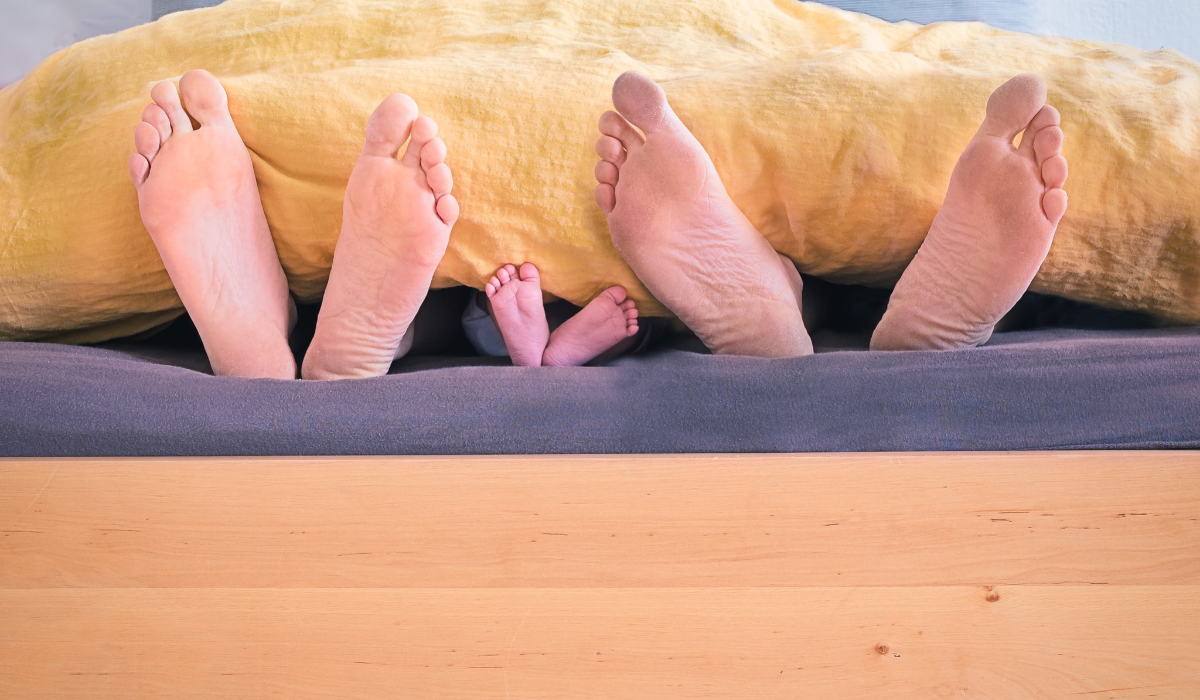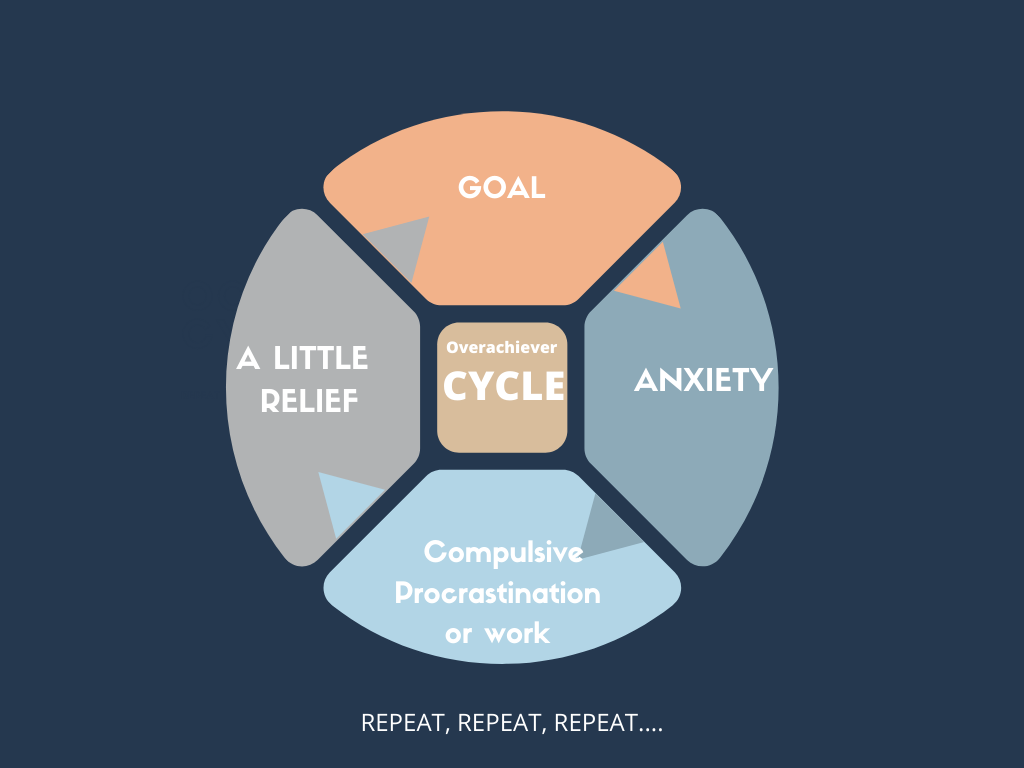My Story of Perfectionism and Burnout
Overachieving is comprised of emotional urges, habits, and so much lost time. I was constantly consumed by the urge to achieve, while outwardly it...
8 min read
 KD Holmes, MS, LPC & Tyler LaFleur RN, BSN, CPT, CEP, CFMP, MLAS
:
Jul 12, 2022 11:55:49 AM
KD Holmes, MS, LPC & Tyler LaFleur RN, BSN, CPT, CEP, CFMP, MLAS
:
Jul 12, 2022 11:55:49 AM

During my first session with a client (also known as “the intake session”) I always ask no matter what the mental health issue—
This one detail tells me so much about your functioning and is essential to treating mental health effectively. It is the cornerstone to our human existence because it facilitates many essential biological processes which affect our mental health and our well-being.
The following physiological processes all revolve around or rely on getting adequate restorative sleep:
Sleep is so important to our normal physiological processing and metabolism that most disorders that often arise due to poor diet and lifestyle habits can simply be brought on from disrupted sleep. Disorders such as Obesity, High Cholesterol, and High Blood Pressure (Hypertension) can all be brought on due to poor sleep patterns and habits.
But wait, there’s more…
If you are surprised by the impact that sleep has on our physical health, just imagine what years of sleep deprivation can do to our mental health!
We dive a bit deeper below, but it’s important for the reader to understand the long-term effect that sleep deprivation has on your entire hormone spectrum which will begin to affect neurotransmitters and receptor site sensitivity over time. While a few days of lower levels of sleep can be felt consciously in regard to mental performance and physical energy, over months and years, the entire mental landscape can begin to shift, thus impacting our memory consolidation, mood, and emotional responses the days following poor restorative sleep.
In the therapy world we pay close attention to the amygdala. This is the part of the brain that processes emotions and holds trauma (big or little). A symptom of disorders related to trauma can be problems with sleep and therefore we must treat the trauma in order to restore a healthy sleeping pattern. Sleep also serves to help manage our responses to these events. It is like a loop that feeds itself and perpetuates the problems—lack of sleep leads to poor response to traumatic triggers and then feeds back to poor sleep all over again.
Because all these biological processes are affected by sleep is important to look at our daily habits that impact your sleep. Most people look at sleep as an individual process not contingent upon your day...Wrong...our sleep “problems” start the day before.
When I was a new therapist, I never asked about napping. Teens are classic examples of this phenomenon. They will worry or stay up on their phones so sleep less at night, which then leads to napping, and repeat. Now these teens or (adults) have a messed up circadian rhythm which leads to patterns of not feeling sleepy at bedtime and instead feeling sleepy at nap time. Our circadian rhythm is our internal “clock” that is mainly synchronized by the 24-hour light cycle of the sun.
Be aware this sleep pattern increases feelings of loneliness and isolation.
Sleep is fundamental to processing your day (REM sleep) and deep sleep is crucial for repair and recovery.
Most people think that “sleep” is similar to a light switch, in that you are simply “asleep” or “awake”, but this couldn’t be further from the truth.
Sleep, however, has 3 or 4 different stages, with the two main types being REM (Rapid Eye Movement) and Deep Sleep.
While REM sleep is fundamental for dreaming and processing our day, Deep Sleep is mainly for physical recovery and healing.
Not getting adequate time in either of these stages is a problem, but for the sake of mental health, remaining chronically deprived of REM sleep can increase the risk of several mental health issues.
With impaired REM sleep, you're at greater risk for:
Social media possesses both positive and negative effects. Thanks to years of behavioral research, we now know the most powerful reinforcers are occasional reinforcers, which social media falls into this category when you get a positive effect from scrolling. Some of the negative side effects of social media are anxiety, depression, inadequacy about your life or appearances, increasing feeling of isolation, fear of missing out, compulsive behaviors of checking responses to your posts, checking other’s pages, rumination, and self-absorption.
Aside from the numerous negative mental health effects that social media can induce, one of the biggest disruptors of sleep and catalyst for increased risk of mental health issues is simply the light from our phones at bedtime.
While constant phone interaction heightens your nervous system and affects parts of your brain that make it hard to relax, the bright light from our phones drastically disrupts our circadian rhythm by delaying our melatonin production.
Our circadian rhythm is our internal “clock” that is mainly synchronized by the 24-hour light cycle of the sun.
Ideally, you want to expose your body to bright lights during the daytime--and an absence of light (i.e. darkness) at nighttime.
If not, and you do get exposed to bright lights during the nighttime and not sufficient bright light during the day, the circadian rhythm will be disrupted.
Want to know one of the quickest ways to ruin your sleep quality?
The answer is easy: Drink some alcohol before bedtime!
Not only does alcohol affect how long it takes to fall asleep, but it also massively disrupts the amount of deep sleep and REM sleep you get as well.
Of course, tolerance also plays a role here. If you have been drinking for years, you won’t have the same effect as someone that is trying alcohol for the first time.
But, make no mistake, there is a reason why you can go out for a night of drinking with your friends, sleep for 12 hours, and not feel refreshed at all. The drinking, circadian rhythm disruption, and detoxification all lead to a disastrous combination.
So, remember, just because you don't feel “drunk” doesn’t mean that you aren’t disrupting your sleep quality.
Most sleep medication affects your REM and deep sleep.
Because if you are depressed you don't need any extra problems with lack of energy. When I look at this one factor it can affect someone's ability to attend school and or work, which affects their mood for the day and their self-esteem.
Rumination is a common symptom in Generalized Anxiety Disorder, similar to obsessions in Obsessive Compulsive Disorder. If it is affecting your sleep or your child’s sleep this indicates higher levels of symptoms and seeking professional help is needed.
Scenario bending- going over different scenarios with different outcomes that produce anxiety and make you feel better and anxious (this goes hand in hand with OCD)
Neurodivergence is the term for when someone's brain processes, learns, and/or behaves differently from what is considered "typical". It refers to the way our brain receives information, processes it, and is affected by stimuli in the environment. It often refers to Autism, ADHD, Sensory Processing, and learning differently. You do not need a diagnosis to have some of these neurological differences. These neurological differences greatly impact the amount of stress in our nervous system and thus our sleep. It's the biological way we experience the world. Light, sound, textures, and excitability triggered by the environment transmit into stress in our bodies. Coping better with stressors in the environment will improve our sleep.
Your night starts the day before you go to sleep. Identifying the sleep problem is essential to feeling good the next day especially if you are struggling with a mental health issue. You need all your energy for moving through your mental health in the healthiest way possible.
There are neurotransmitters that control melatonin secretion (sleep) that can be affected by caffeine.
Journaling (if not in a compulsive way) can help unload your day. The important part of journaling is it allows you to redirect your mind away from anxious thoughts. There is a time to problem solve and it's not when you're falling asleep. Really problem solving is done during your most wakeful part of the day. Once...not on repeat.
Mindfulness of the present moment / Meditation at nighttime when you get into bed for worrying at bedtime. This trains your brain to redirect away from anxious thoughts when you choose. It is used to treat OCD. The trick is to be willing to let the anxious thoughts go.
We often think worrying is what responsible successful people do to ensure success when in actuality it provides a false sense of security, where anxiety is only relieved if you think about it but then it creates more so the loop of nonsense is born. If you can't do this, contact a therapist.
Eye Movement Desensitization and Reprocessing (EMDR) and or Deep Brain Reorienting are essential for changing your body’s response to current anxiety triggers related to trauma history, and sometimes the trauma is big trauma like; war, car accident, sexual abuse in childhood, developmental trauma which is chronic emotional and or physical abuse over time or little trauma; or little trauma like a breakup, difficulty in school or smaller events that overwhelm your ability to cope. The point is even if you don’t think it's related to your current anxiety, and you have a trauma history, it more than likely is.
The Body Keeps the Score is from a book written by German psychiatrist, Bessel van der Kolk, and scientifically explores the connection between trauma and anxiety thoroughly. Van der Kolk suggests a regular yoga practice for trauma survivors and if it works for severe anxiety, imagine what it would do for milder forms of it. If you hate yoga, try a few yoga stretches...sometimes doing what is best for your body is hard and has been tackled incrementally.
ERP helps address OCD: Therapy with ERP teaches clients to learn how to manage their biological brain response that has been reinforced through a compulsive pattern. So being able to detach from this mind pattern is essential. OCD is a biological condition because these clients have more grey matter in their brain, so you must learn healthy ways to manage your anxiety and compulsive urges.
Living in a heightened state of arousal, achieving success after success in a compulsive manner, affects our nervous system, and our ability to relax.
Have you ever done a really hard work out and did not sleep that night even though you were so tired? Our bodies respond to stress in this way….so we must compensate for our daily stress with healthy habits (abstaining from compulsivity, yoga, stretching, baths, trauma work, blue light glasses, and routines.)
These life changes are what it takes to train our bodies to sleep. We were born knowing how to do this. Let's return to that head space.

Overachieving is comprised of emotional urges, habits, and so much lost time. I was constantly consumed by the urge to achieve, while outwardly it...

Overachieving is a complex web of behaviors, personality traits, mental health challenges, historical influences, and social interactions. It’s not...

One of the fundamental pillars of my therapeutic approach focuses on adults who find themselves entangled in the intricate web of anxiety and...